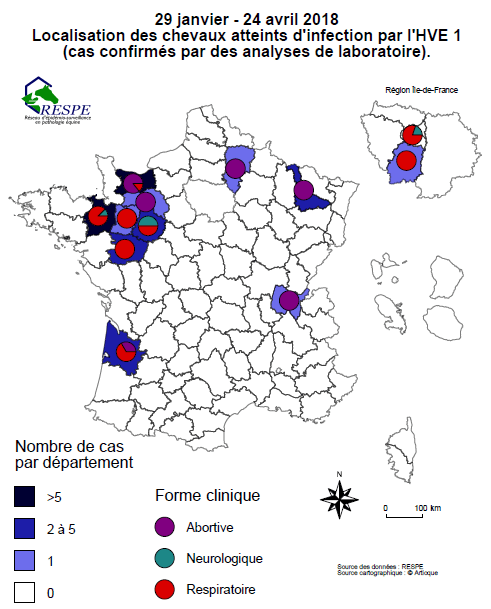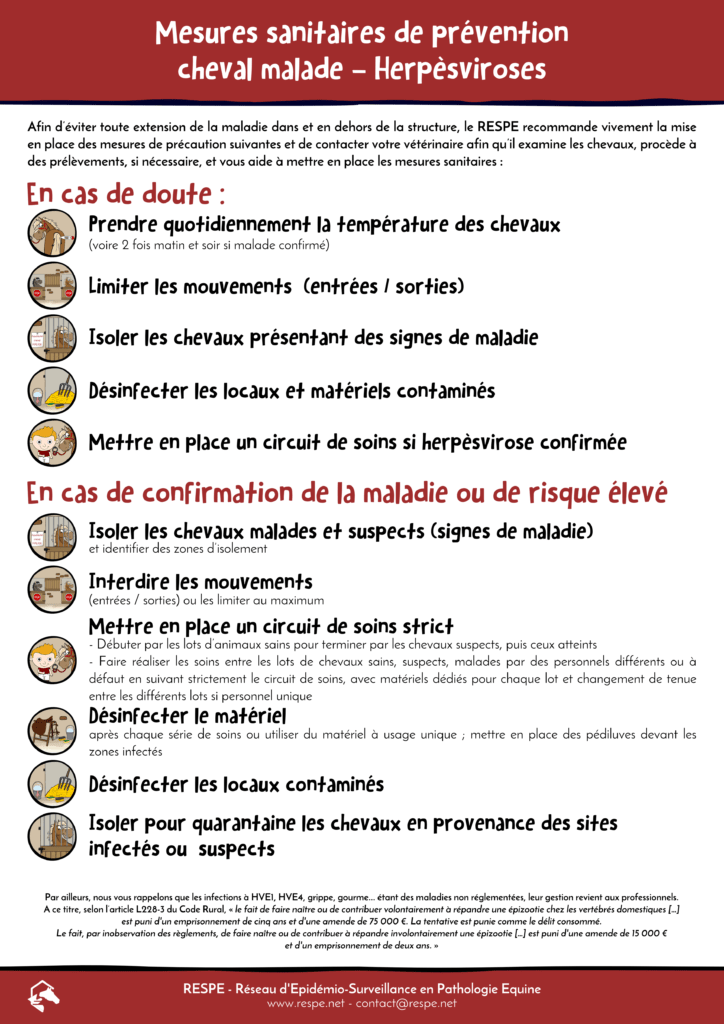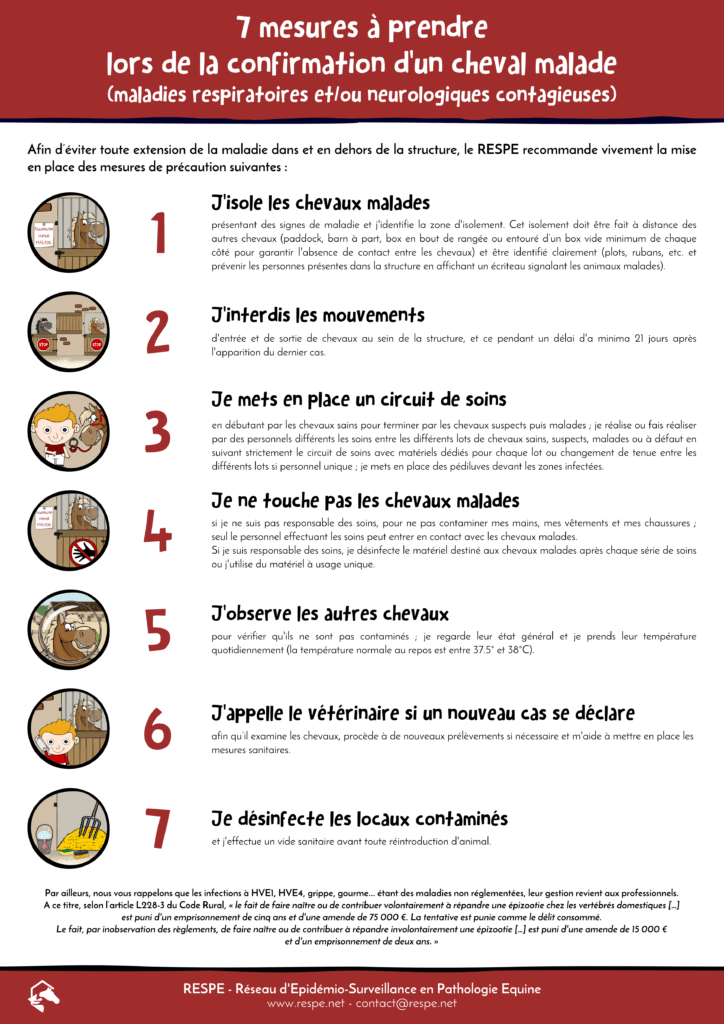Monday, April 30, 2018
Dans plusieurs départements en France (Ille-et-Vilaine, Calvados, Sarthe, Maine-et-Loire, Orne, Mayenne) des alertes à l’HVE-1, la rhinopneumonie équine qui peut être mortelle, ont été recensées. Il y a trois formes de la maladie ; abortive, respiratoire et neurologique (la plus rare et plus dangereuse), et les trois formes ont été détectées. En tout, le RESPE (réseau d’epidémio-surveillance en pathologie équine) déclare 22 foyers et environ 200 chevaux malades ou suspects : principalement des chevaux de sports (chiffres du 27 avril).

Retrouvez la carte mise à jour par le RESPE ici
Suite à cette alerte, les cavaliers de concours de ces départements ainsi que de ceux aux alentours ont dû faire face à l’annulation d’un certain nombre de concours (CSO de Deauville, au Mans, CDI de Saumur notamment) pour éviter le risque d’étendre l’épidémie.
En effet, l’HVE-1 est une maladie infectieuse de la famille des Herpesvirus très contagieuse, qui se transmet facilement par les chevaux infectés, mais aussi par les chevaux porteurs sains (chevaux sans symptômes mais peuvent devenir contagieux). La maladie se transmet par des secrétions respiratoires (pour la forme respiratoire), par contact avec un avorton ou par secrétions utérines (pour la forme abortive).
Les symptômes à surveiller : fièvre, problèmes respiratoires, toux, écoulements nasals, hyperthermie, abattement, fatigue, dépression, perte d’appétit, avortement. Les chevaux vaccinés, eux, présenteront des symptômes majoritairement atténués. Ces symptômes apparaitront en général de 2 à 10 jours après la contamination. Enfin, les cas les plus avancés atteints de la forme neurologique pourront présenter une parésie, des pertes d’équilibre et des troubles de la conscience.
Le traitement : il n’y a pas de traitement pour la forme abortive, et des traitements existent pour les formes respiratoires et nerveuses, mais ils ne feront qu’atténuer les symptômes.
– Etre à jour dans les vaccins
Procédez à un rappel pour les chevaux vaccinées il y a plus de 6 mois, et vaccinez les chevaux non-vaccinés et non-exposés. Par contre, sachez que le vaccin n’aura des effets que 4 à 6 semaines après la première injection
La vaccination est au contraire déconseillée pour les chevaux exposés
– Limiter les déplacements des chevaux ainsi que leurs contacts avec les autres chevaux
– Utiliser son propre matériel, du matériel propre à chaque cheval (équipement, seau, etc.) et désinfecter le matériel utilisé
– Isoler les nouveaux chevaux ainsi que les chevaux qui reviennent de déplacement
 | sdc |  |
Soyez vigilent, prenez vos précautions et respectez les mesures recommandées par le RESPE afin de limiter l’épidémie.
En cas de doute, appelez votre vétérinaire pour qu’il teste le cheval en question (les tests pour l’HVE-1 sont un écouvillon nasal et un échantillon de sang qui confirmeront ou non la maladie). Et si la maladie est confirmée, n’oubliez pas de déclarer l’animal malade.
LE RESPE « conseille fortement aux sites de rassemblements ayant hébergé récemment des chevaux suspects ou confirmés de suspendre leur participation à des concours ou l’organisation de manifestations dans leurs locaux » et « incite également les détenteurs de chevaux ayant participé à des concours dans les zones géographiques à risque (avec foyers confirmés), à une surveillance accrue de leurs animaux et à ne pas se rendre sur les terrains de concours en cas de suspicion, dans l’attente des résultats de prélèvements, ou en cas de confirmation. »
Pour lire le communiqué du RESPE en entier, c’est ici
The Seaver team